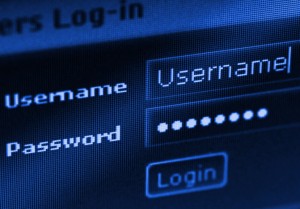By Allen Starrett, Managing Attorney at Starrett Law Firm
It’s no secret that we’ve come to rely on the internet. What is a secret, of course, are the usernames and passwords that we use to access our online accounts.
From email accounts and online banking to credit card statements and utility bills, we all find ourselves going to great lengths to protect our login information from prying eyes and hackers. But what happens if you become incapacitated or die? How will your family members gain access to your online accounts and digital information that may prove invaluable in settling your estate?
In our digital society, everyone should make it a priority to create a comprehensive list of every online account they have and should record the username and password for each one.
This task can be as simple as handwriting a list. Of course, you must then remember to update your list periodically with changes to existing accounts or information for new accounts. And depending on where you store your handwritten list, this may mean repeated trips to the bank and your safe deposit box.
Perhaps a more convenient solution is to sign up for an account with one of a number of companies offering an online “virtual vault.” Inside your vault, you can store all of your usernames and passwords securely and make changes 24/7/365. Plus, changes are only a computer away.
Whichever method suits you, act now to record this information as one element of your estate planning. Then, be sure to let your family know where to find it so they can access to your online accounts in the event something unfortunate happens.
If you have questions concerning this post, feel free to contact Allen at (704) 887-4944 or ars@starrettlawfirm.com.
13850 Ballantyne Corporate Place, Suite 500
Charlotte, NC 28277
(704) 887-4944
www.starrettlawfirm.com
Disclaimer: Our firm published this article for general guidance and educational purposes only. Contact a licensed attorney in your state for specific legal advice.



